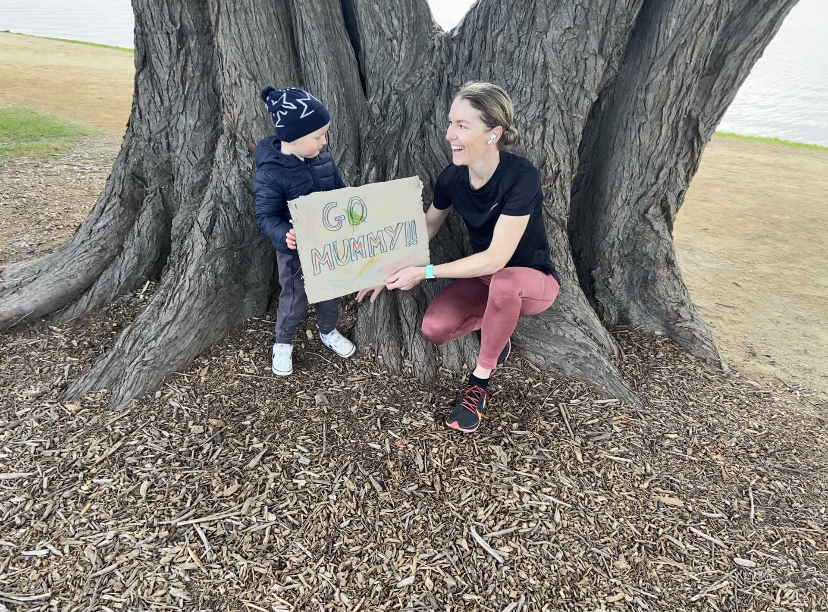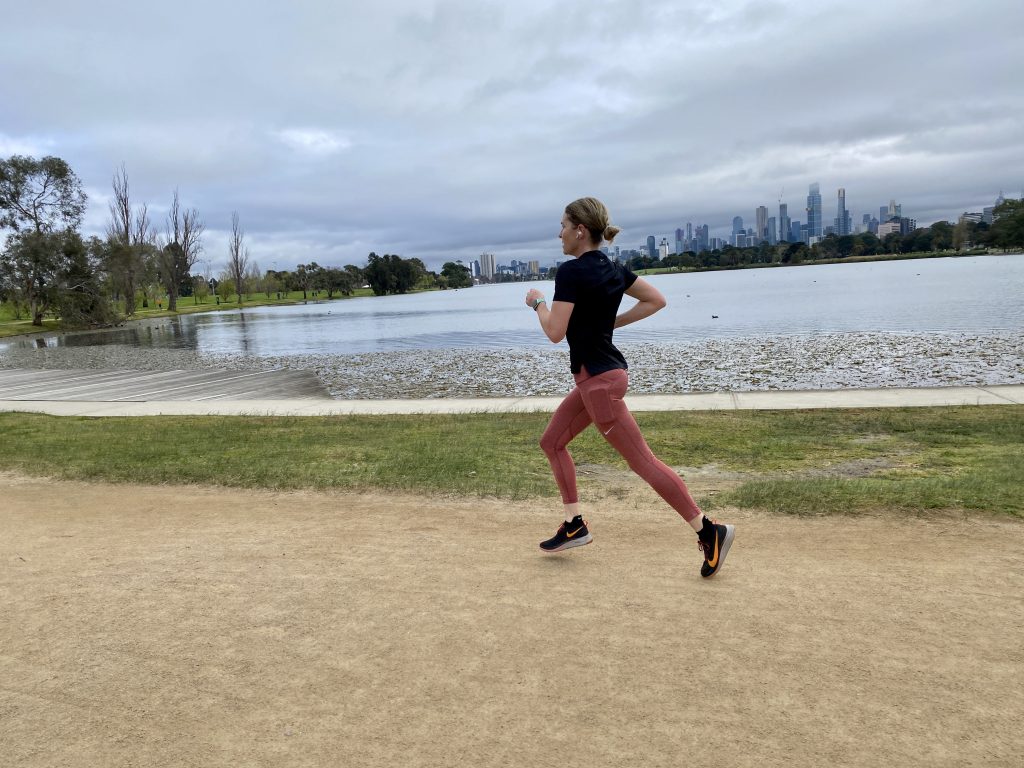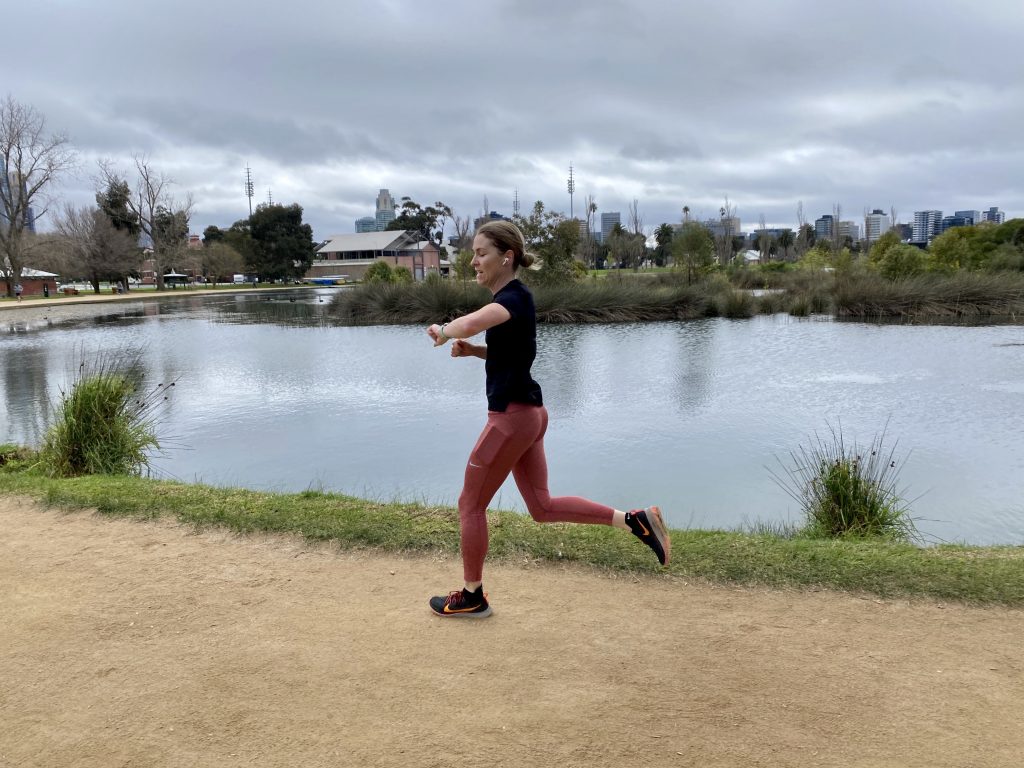What I learnt from not breaking my 5K PB
A race recap and reflections on not achieving my running goal

On the weekend, I ran a hard race against no one but myself. After four weeks of training, I set out to break my 5K personal best time of 21:02.
I showed up to the race quite nervous. I told myself nerves are a good thing because they mean I care. But deep down I think I was nervous because I wasn’t sure I would hit my goal.
I love a training plan because it gives me structure and motivation, and I’d worked hard during the four weeks – completing every workout set before me. Yet something niggled at me. In my speed workouts I often struggled to maintain goal running pace. Sometimes I’d get it and hang on for a while, only to have it slip away again. This rattled me and having no experience running a 5K time trial before, I didn’t know what it meant for my performance come race day. In a half or full marathon you have time to make up ground. That’s not the case in a fast 5K. It’s all or nothing.
A friend recently told me that running a quick five kilometres is more impressive than crossing the finish line of a marathon, and now I know why. It stings in a different way.
I started the race strong and a little too fast, so I pulled back for kilometres 2 and 3, but I lost too much ground in kilometres 4 and 5. The swirly wind didn’t help and my mind got the better of me. I wasn’t sure where the 5K finish line was, and over the last 500 metres I let my focus shift to looking at my watch, instead of running strong till the very end.
My goal was to beat my previous 5K PB of 21.02. To do this, I wanted to run an average 4:10 per kilometre. But in the end I ran 21:30, with an average pace of 4:16.
When I realised I hadn’t achieved my goal I was disappointed and frustrated at myself. As I bent over and sucked in air, my coach gently brought me back to standing upright with kindness and encouragement. The initial disappointment subsided, but throughout the day I replayed the race and what I could have done differently to achieve a different outcome. I suspect this will happen for a little while.
Today I took some time to sit and reflect on my disappointment and here’s what I wrote down.
Recall the why
So, I didn’t run as fast as I’d planned, but this wasn’t the reason I decided to do the 5K time trial in the first place. My intention in setting out to run the race was a positive one. I wanted to see what my body and mind were capable of. I wanted to see where my fitness was at. Now I know, and I’m grateful for this knowledge. While my running goal might have been a new PB, my why was different and it’s good to remember this.
Consistency is key
The key to achieving your running goal isn’t perfection, it’s consistency. Instead of focussing on the aspects of my training that I didn’t feel were going to plan, I could have been proud of my effort and consistency. Training after training, I showed up and did my best. Given the mental headwinds many people are currently experiencing because of COVID-19 restrictions, I could have celebrated my consistency and used it as a powerful tool to build my confidence before and during the race.
Give credit where credit is due
Doing something, no matter how small, towards my running goals still counts. So I’m not going to beat myself up because I didn’t hit my goal. Instead, I’m going to give myself credit for getting out there in the first place.
Look ahead
The setback is a chance to focus on the long term and try again. I still want to run down a new 5K PB, so I’ll take the learnings from my training and race day performance and channel them into my next attempt.
The personalised four-week running plan with Nike Run Club has re-established consistency and quickly built back both my fitness and strength. Before this program, my running was hit and miss and without a race to run I felt rudderless. Now I have a solid base to build from and my goal of a new 5K PB has just got that little bit closer.


